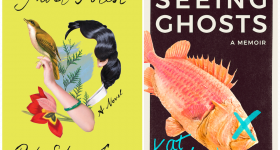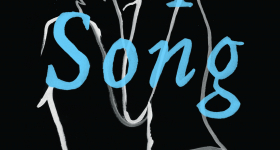The Symposium By Plato (Penguin Classics)
Philosophy and dramatic dialogue at the same time, a book one can read over and over without tiring.
The Picture of Dorian Gray By Oscar Wilde (Modern Library)
One of the most complete books I have ever read; aesthetic and revealing with one hell of a preface.
Notes from the Underground By Fyodor Dostoevsky
(Penguin Classics)
Unlike most people who find this book entirely dark and without hope I've always thought that the very act of plumbing our depths and facing the abyss is cause itself for hope.
In Husband of a Fanatic (New Press), Amitava Kumar—a Hindu Indian writer married to a Pakistani Muslim woman—chronicles the political, national and religious entanglements of his new marriage.
An American son unexpectedly inherits his father's sugar fortune in the Philippines in The Disinherited (Farrar, Straus and Giroux), Han Ong's second novel.
Edited by Gina de Vries and Diane Anderson-Minshall, Becoming: Young Ideas About Gender, Identity and Sexuality (Xlibris), features essays, poems, plays and prose by young queer writers.
David Yoo's debut novel Girls For Breakfast (Delacorte) is the '80s coming-of-age story of Nick Park, the only Korean American kid in his suburban town.
Rolling the R's author R. Zamora Linmark's long-awaited poetry volume, Prime Time Apparitions (Hanging Loose Press) moves between the Philippines, Hawaii and the San Francisco Bay Area.
Marianne Villanueva's Mayor of the Roses: Stories (Miami University Press) contains 18 short stories that revolve around the Filipino American diaspora.
Winner of the Asian American Writers Workshop's National Poetry Manuscript Competition, The Man With My Face (AAWW) is Jennifer Tseng's auspicious first collection.
Persepolis author Marjane Satrapi weaves together the tales of a group of Iranian women through art and storytelling in Embroideries (Pantheon).
Ha Jin's novel War Trash (Vintage) is the story of a reluctant Chinese soldier living in a P.O.W. camp during the Korean War.
The Time at the End of This Writing (Ahadada Press), Paolo Javier's debut poetry collection, travels from Manila and Cairo to New York and into the future. —Lisa Ko









Comments